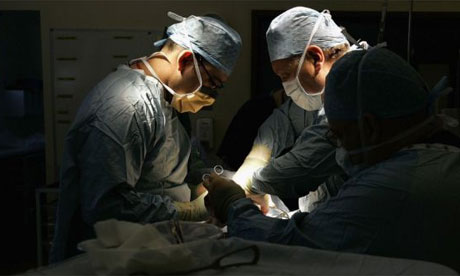
Britons on the transplant waiting list may be able to get a life-saving donated organ in Spain or another European country that has a surplus, under new proposals from the European Commission.
EU health commissioner Androulla Vassiliou, in London this week to persuade the UK parliament of the benefits of the imminent directive on cross-border healthcare, said there would be gains for British patients who could not get the care they needed in the UK quickly enough.
An EU directive on "health tourism" was needed, she said, because of a number of cases where courts have backed patients seeking treatment at the expense of their government in another member state. The NHS has been ordered to pay for hip replacements abroad, for instance, for patients who faced a long wait in the UK.
Waiting lists for many procedures have come down dramatically in the NHS, but many people still die on the organ transplant waiting list. It might be possible to get help from Spain, which has the highest number of donations in Europe, Vassiliou said.
"Member states should not offer organs to the detriment of their nationals," she said, "but sometimes you have an organ available and it is not appropriate for anybody on the waiting list. Why waste an organ?"
In Cyprus, she added, donors' kidneys can be transplanted, but not their hearts or livers. These could be used elsewhere in Europe, possibly by Cypriot patients who would travel for the surgery. A single donor register for the whole of Europe was being discussed, she said, although it would not be part of the directive.
She denied that the UK would in turn be flooded by patients from other countries in Europe seeking treatment their own health service could not provide. The government would be entitled to say that the NHS could not cope, "if the UK system has no capacity to receive foreign nationals because they believe it will be to the detriment of their own nationals by extending waiting lists".
She also ruled out the possibility of British patients flooding into Europe for expensive drugs that are not approved for use in the NHS. Nobody will be able to get treatment their own health service does not sanction – unless they pay for it privately.
There would be advantages, Vassiliou said, for adults and children diagnosed with rare diseases. It is likely that a few specialised centres around Europe would develop, where many patients would be able to get care not available in their own country.

